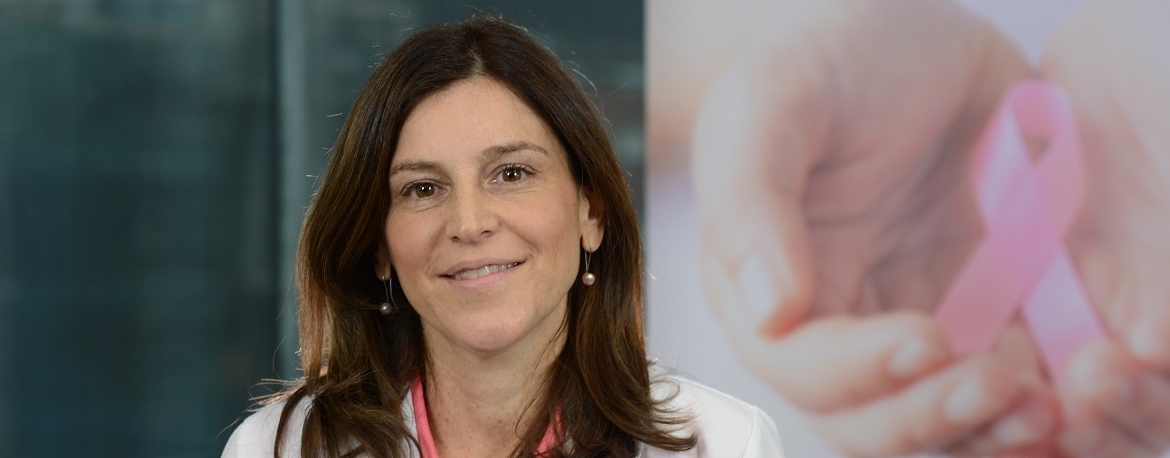MEDIO DE PUBLICACIÓN
Diario EL PAIS
El Hospital
Prensa
La mejor protección es la detección temprana del cáncer de mama

Durante todo el mes de octubre y bajo la consigna “La mejor protección es la detección temprana” el Hospital Británico lleva adelante una serie de actividades informativas y de prevención del cáncer de mama, que involucran a sus departamentos de Ginecología, Mamografía y Oncología.
Octubre es el mes de la concientización sobre el cáncer de mama y en ese marco el Hospital Británico intensificó las actividades informativas enfocadas en la prevención de la enfermedad.
Es posible detectarlo en una etapa temprana y puede ser curable si se realiza un tratamiento oportuno, fueron los ejes comunicacionales de los contenidos informativos que se compartieron con socios y usuarios del Hospital.
El cáncer de mama es la enfermedad maligna más frecuente o con mayor incidencia entre las mujeres uruguayas. Se diagnostican aproximadamente unos 1800 casos por año, 5 por día, y produce la muerte de 650 mujeres cada año.
Según información de las organizaciones que dan seguimiento a la enfermedad, aproximadamente una cada 11 mujeres uruguayas podrían desarrollar cáncer de mama en algún momento de su vida.
En ese marco, los profesionales médicos y no médicos del Hospital Británico reivindicaron la realización periódica de mamografías, el diagnóstico precoz y la planificación adecuada de los tratamientos a aplicar, como pilares para enfrentar y controlar el cáncer de mama.
Uruguay presenta una tasa de incidencia del cáncer de mama muy alta, vinculada al “estilo de vida occidental” de su población, aunque desde mediados de la década del ’90 ésta viene registrando un “lento pero sostenido” descenso.
La mejora de los tratamientos, las campañas de prevención y la creciente conciencia sobre la importancia de la detección precoz, explicarían esta mejora, sostuvo la doctora Cecilia Castillo, médica oncóloga del Hospital Británico.
La especialista destacó la importancia que en ése sentido tienen “los cambios en el estilo de vida” y apuntó a la realización de actividad física, la disminución del consumo de alcohol, mantener un peso saludable en la etapa de la menopausia, utilizar terapias alternativas al reemplazo hormonal para tratar síntomas de la menopausia y a la lactancia materna como “factor protector”.
Castillo admitió que en ocasiones puede existir temor u otro tipo de resistencias a realizarse los estudios para la detección precoz del cáncer de mama, peroseñaló que como contrapartida son muchos los beneficios que se obtienen. Con un diagnostico oportuno se reducen drásticamente tanto la mortalidad como las secuelas de los procedimientos, por menor necesidad de mastectomias o tratamientos oncológicos, graficó.
Insistió que la realización de la mamografía es la principal herramienta para la detección precoz del cáncer de mama y explicó que la edad a partir de la cual someterse al estudio, así como la frecuencia, deben ser evaluados con el médico tratante de cada paciente, debido a que los factores de riesgo varían para cada mujer.
En éste sentido, la especialista apuntó que tanto el autoexamen, a través del palpado de las mamas, como la realización de mamografías, no deben sustituir la consulta periódica al ginecólogo de confianza.
